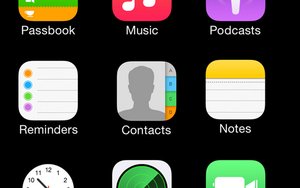Apple Wants Appeals Court To Shut Down Class-Action Over Address Book Uploads
- by Wendy Davis @wendyndavis, August 8, 2016
 Apple wants a federal appellate court to overturn a recent decision granting class-action status to a group of mobile users who say their address books
were accessed without permission by the app developer Path.
Apple wants a federal appellate court to overturn a recent decision granting class-action status to a group of mobile users who say their address books
were accessed without permission by the app developer Path.
In papers quietly filed late last month, the company asks the 9th Circuit Court of Appeals for permission to immediately appeal the "manifestly erroneous" order that granted class-action status to nearly half a million people who downloaded the Path app to their iPhones, iPads and iPod Touch devices.
The battle dates to 2012, when allegations surfaced that Path accessed and downloaded Apple users' address books without their knowledge. The accusation against Path resulted in charges by the Federal Trade Commission, which the company settled by agreeing to create a comprehensive privacy policy.
Soon after reports emerged about Path, a researcher also accused Hipster (later acquired and shut down by AOL) of also scooping up people's address books without their permission.
Observers subsequently accused other companies -- including Twitter, Yelp and Foodspotting -- of downloading and storing users' address books. Those other companies reportedly asked people for permission to access their address books, in order to help them connect with friends who also used the service. But Twitter, Yelp and the other developers allegedly didn't specify that they would store the data.
In late 2012, iPhone user Marc Opperman, and a group of other consumers, sued a host of app developers and Apple. The complaint against Apple alleged that the company's marketing materials -- including ads, blog posts and corporate statements -- misled consumers into believing that the company's devices would keep personal data secure. The consumers also say that Apple enabled Path to violate their privacy.
The lawsuit specifically alleges that the address-book uploads amount to "intrusion upon seclusion," which is actionable in California.
U.S. District Court Judge Jon Tigar in the Northern District of California ruled last month that approximately 480,000 Apple users who downloaded the Path app could proceed as a class against both Path and Apple. He hasn't yet ruled on whether the users can also bring class-actions against other developers.
Apple now says the matter shouldn't move forward against itself (or any of the other defendants) as a class-action, arguing that questions about a claim for "intrusion upon seclusion" requires case-by-case decisions.
"Binding California case law makes clear that this claim requires an assessment of the subjective privacy expectations and mental anguish of each individual class member," Apple argues in papers filed with the 9th Circuit Court of Appeals.
"If not immediately corrected, the district court’s errors will likely be repeated when plaintiffs move to certify multiple additional classes," the company adds. "There is no reason to waste the time and resources of both the district court and the parties by litigating putative class claims when certification turns on manifestly erroneous legal conclusions."


